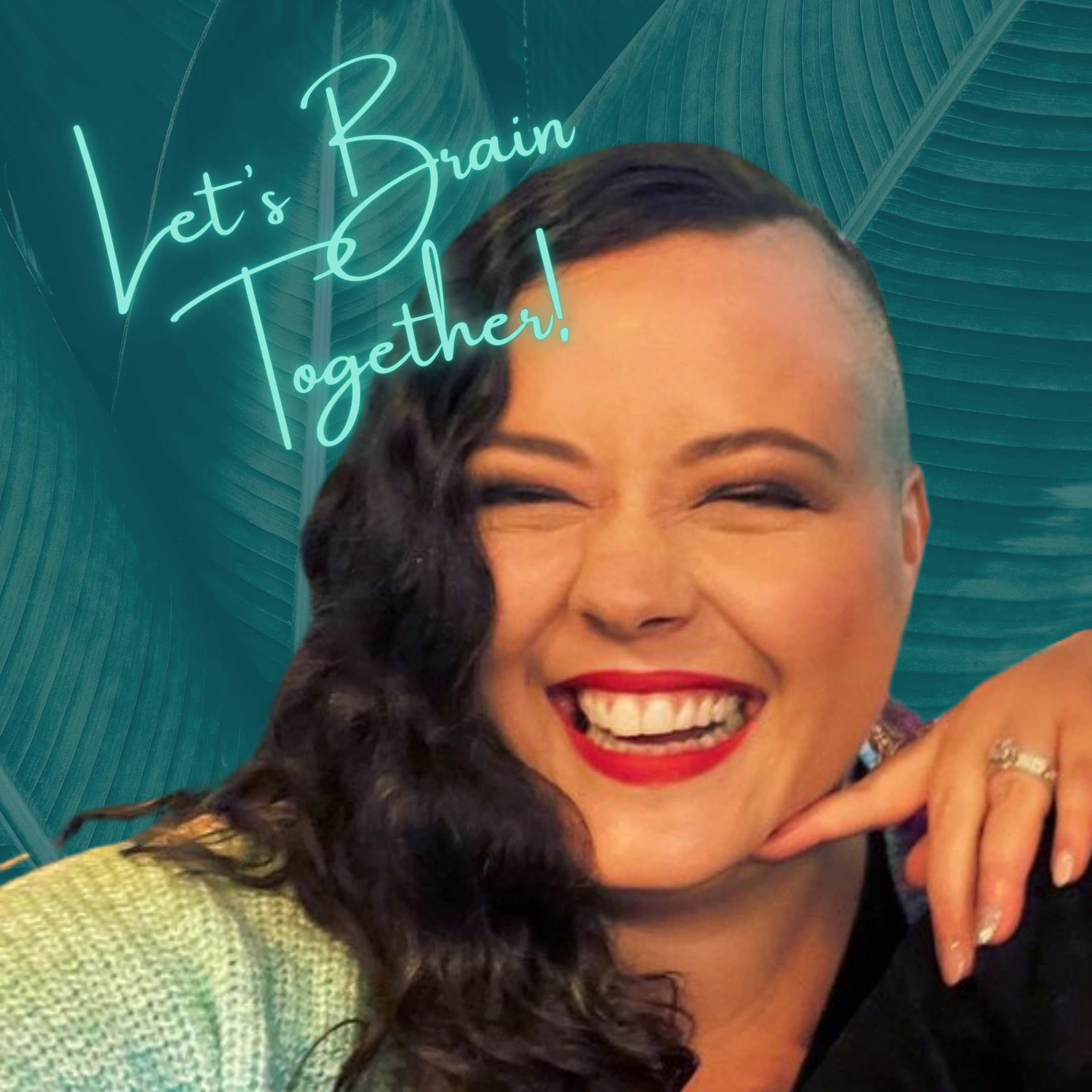
NeuroKind Academy
LAB 3: THE HUMAN HOW
Welcome to Lab 3! This lab is for leaders who want to learn how change impacts the brain, and how to leverage Emotional Intelligence to navigate change effectively and keep both you and your team performing at your best.
Explore the lab in detail, below, or click the button below to register for as little as $85/month for 4 months!
You’ll learn…
Why change management (another strategic) plans fail so frequently, according to recent research and leading experts in the field
“The Human How” - an EQ-informed strategic planning tool that centers the individual's physical, emotional, and mental capacity to show up for the plan
A brain-based approach to assessing the level of demand your tactical plan requires
What factors can positively or negatively impact your own and your team’s capacity
How to assess your own and your team’s current capacity
How to proactively support yourself and your team to show up at their highest level by baking elevating capacity into your plan
+ walk away with…
A better understanding of the neuroscience of change, and why brains both hate it and need it
An evidence-based approach to resolving procrastination
Practical, brain-based tools and strategies to support you in bridging the gap between everyone’s current capacity, and the capacity you and they will need to show up with in order for your (organization’s) plan to succeed
A quick-reference worksheet that walks you through the entire “Human How” process
Greater confidence in your ability to ethically and effectively lead organizational change
Lab 3: The Human How
Dive into the neuroscience of change, and gain confidence in your ability to ethically and effectively lead your team through challenge and uncertainty.
-
Chapter 1: Is change good or bad?
-
Lesson 1: Change is hard on the brain
Growth is good for business (and brains!), but growth means change. Change can be hard on the brain, because we perceive uncertainty as a potential threat to our wellbeing or survival.
In this lesson, you’ll learn about:
The neuroscience of change, and why brains both hate it and need it;
Why procrastination is actually an emotional regulation issue, and what to do about it.
-
Lesson 2: Change is good for the brain
Change is necessary for growth, cognitively generative, and, well - constant. So our ability to make meaningful progress in our lives is, by definition, either limited or amplified by our ability to manage uncertainty.
In this lesson, you’ll learn:
How reframing our perception from change to challenge improves our ability to navigate uncertainty; and
Where “Growth Mindset” comes in…
-
-
Chapter 2: Introducing "The Human How"
-
Lesson 1: How do we transform change into challenge?
How do we give ourselves the best chance of reaching our personal and organizational change goals?
In this lesson, Colleen will introduce you to “The Human How”, an EQ-informed strategic planning tool that centers the individual’s physical, emotional, and mental capacity to show up for the plan.
-
Lesson 2: Grow your Emotional Intelligence (EQ)
As a leader, the first step in learning how to bake capacity into your strategic plans is clear: improve your Emotional Intelligence (EQ).
In this lesson, you’ll learn why Emotional Intelligence is a critical leadership skill, and explore some resources that can support your EQ development.
-
Lesson 3: Learn what impacts our human capacity
In this lesson, you’ll learn what impacts our physical, emotional, and mental capacity.
Physical capacity allows your body to power your brain.
Emotional capacity allows your brain power to be directed to the higher-order cognitive functions necessary for goal-directed thinking and behavior
Mental capacity allows you to further refine that power, boosting executive functioning and improving HOW you think (not just whether you can).
-
-
Chapter 3: "The Human How" in action
-
Lesson 1: Establish how much capacity the plan demands
In order to assess whether someone has the capacity to execute our tactical plan, we first need to identify and define our destination - what is our desired outcome, and what will it take to reach it?
By first understanding demand, we are more able to identify gaps in supply.
In this lesson, you’ll have the opportunity to practice identifying the capacity demands of a plan you’re currently developing at work.
-
Lesson 2: Assess your (and your team's) current capacity
In this lesson, we’ll explore capacity-assessment questions that will help you understand the supply you’re working with, so that you can strategically embed EQ tactics that bridge the gap between where folks are, and where they’ll need to be for the plan to succeed.
You’ll have the opportunity to practice applying physical, emotional, and mental capacity assessment questions to your real-world scenario.
-
Lesson 3: Bake elevated capacity into the plan
Effective change management plans leverage emotional intelligence to notice and proactively address gaps between the physical, emotional, and mental demands of the plan and the physical, emotional, and mental capacity of the real human beings responsible for executing the plan.
In this lesson, we’ll explore a variety of concrete strategies you can employ to proactively elevate your team’s capacity, ensuring they’re able to show up and perform at the highest level.
-
Lesson 4: Human How Planning Worksheet walkthrough
In this lesson, Colleen will walk you through “The Human How” Worksheet - a quick-reference tool you can use to think through how to support your team through a change management (or any other) plan moving forward!
-
Meet your NeuroLearning Leader
✳
Meet your NeuroLearning Leader ✳
Colleen Companioni
Colleen is the friendly weirdo at NeuroKind’s helm - a neurodivergent coach for unconventional humans, corporate NeuroTrainer, and NeuroLearning leader. She founded NeuroKind in 2015 with a two-part mission: (1) to bring ethical, executive-level, neuroscience-informed coaching to historically disenfranchised individuals, and (2) to facilitate human connection through applied neuroscience education that helps us understand how we all work.
Through her work, she aims to help shape an equitable world where the truth of our diversity is reflected in our power structures, where rights are inalienable, differences are valued and accommodated, and creativity, innovation and connection can flourish. She believes in a future where all humans are thriving, not just striving and surviving.
Register today, and get ready to take the next step in your neuro-evolution?
Let’s brain together!
Course FAQ
-
Once you purchase the course, it's yours for life! Each lab workbook includes the full presentation deck, and we want you to be able to reference the research and practice the brain-based tools whenever you need - whether that's tomorrow or five years down the line!
-
Nope! Once you buy it, it's yours for life. At NeuroKind, we're all about flexibility and accessibility. So feel free to engage with this course in whatever way - and on whatever timeline - works best for you!
-
Colleen will reach out to you directly within 24 hours of your original purchase to explore what topics you'd like to address in your custom workshop, and to get it in the books!
Hate waiting? Feel free to reach out to her directly at colleen@neurokind.com!
-
No problem! Just make note of your questions, and bring them to the open Q&A session that Colleen hosts on Zoom each month (you'll get a monthly invite via email with all the login information). Everyone gets at least 6 months access to this NeuroKind Academy-exclusive session, to ensure you always get the support you need to bring this transformative work to life!




